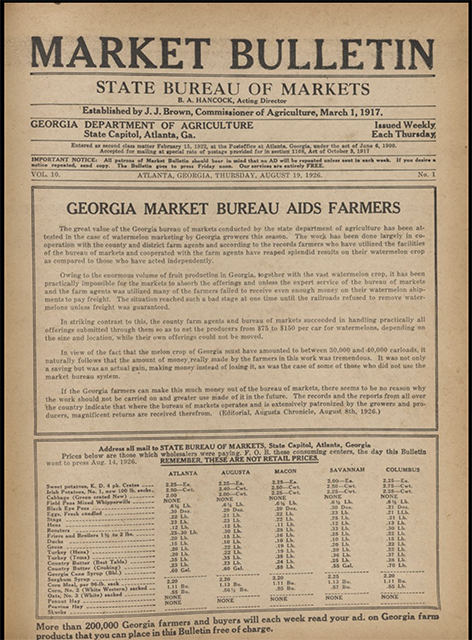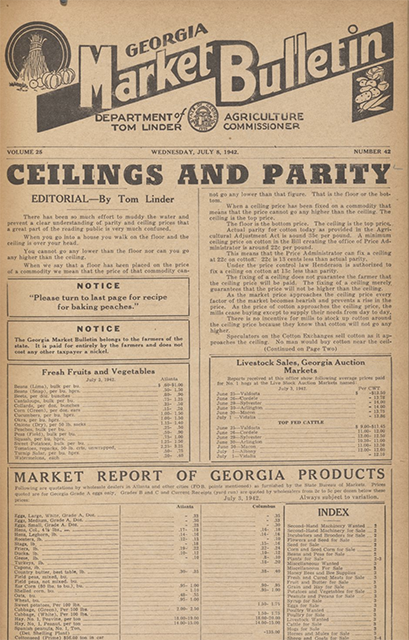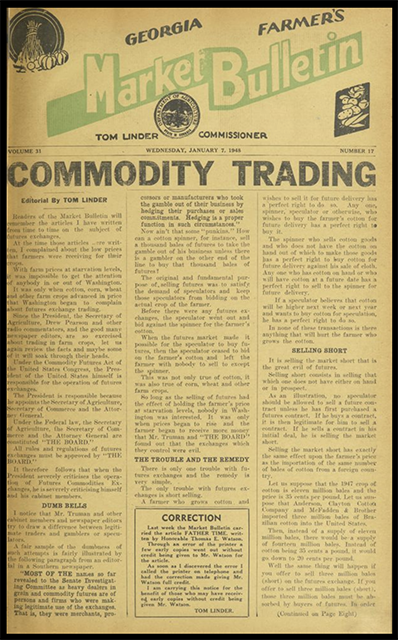Through a partnership with the Houston County Public Library System, the Digital Library of Georgia has completed the final phase of digitization of the Houston Home Journal, a project that has lasted nearly five years. Issues of the newspaper are now available online at the Georgia Historic Newspapers website: gahistoricnewspapers.galileo.usg.edu/.
This project was made possible by the generous donations and support of the following: The estate of Alice L. Gilbert (former Perry Librarian), Flint Energies Foundation, The Friends of the Houston County Public Library, and the Houston Home Journal.
Over the past five years, the DLG has digitized 8,166 issues or 129,029 pages of the Houston Home Journal, dating from 1870 to 2008. This represents the largest date span of any title available on the Georgia Historic Newspapers website. It also amounts to the second greatest number of issues of any newspaper title on the website.
John T. Waterman founded the Houston Home Journal in Perry in December 1870. The Hodges family maintained ownership of the publication for over sixty years, before selling it in 1946. The Houston Home Journal remains the legal organ for Houston County and continues publication as the county’s oldest continually operated business.
This phase of the newspaper digitization project includes five Houston County titles from 1993-2008, a total of 1,983 issues, or 61,743 pages. The newly available titles are available at gahistoricnewspapers.galileo.usg.edu/counties/houston/
Georgette Lipford, president of the Central Georgia Genealogical Society and member of the Friends of the Houston County Public Library System notes:
“The recently completed digitization project of the Houston Home Journal and its addition to the Georgia Historic Newspapers website represents an absolute treasure for anyone researching family in Houston County. Sometimes a newspaper notice is the only surviving document of an ancestor’s existence. These issues of the HHJ have obituaries, wedding announcements, legal notices, employment news, hospitalizations, and photographs, all of which tell an ancestor’s or descendant’s story. What previously may have taken hours of searching to locate can now be found with a couple of mouse clicks and it’s freely available to genealogists across the country!“
Selected images
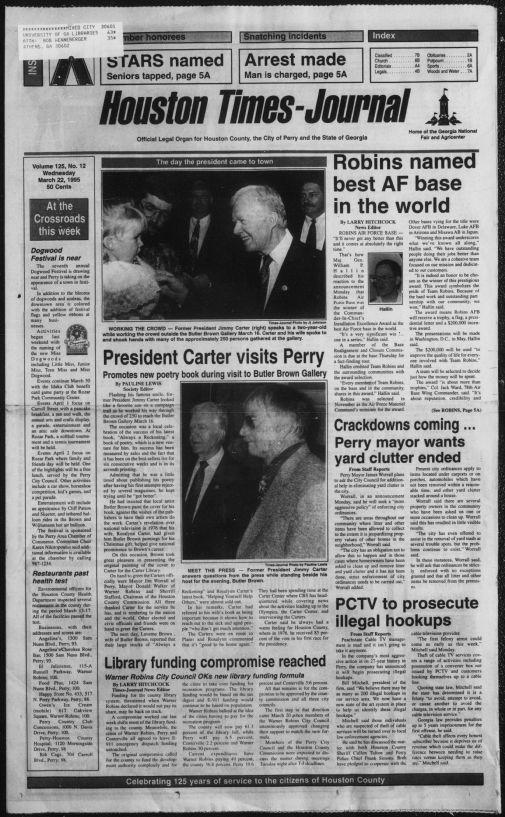
Houston Times Journal, March 22, 1995
“Robins named best AF base in the world”
“The day the president came to town”
gahistoricnewspapers.galileo.usg.edu/lccn/sn94002550/1995-03-22/ed-1/seq-1/
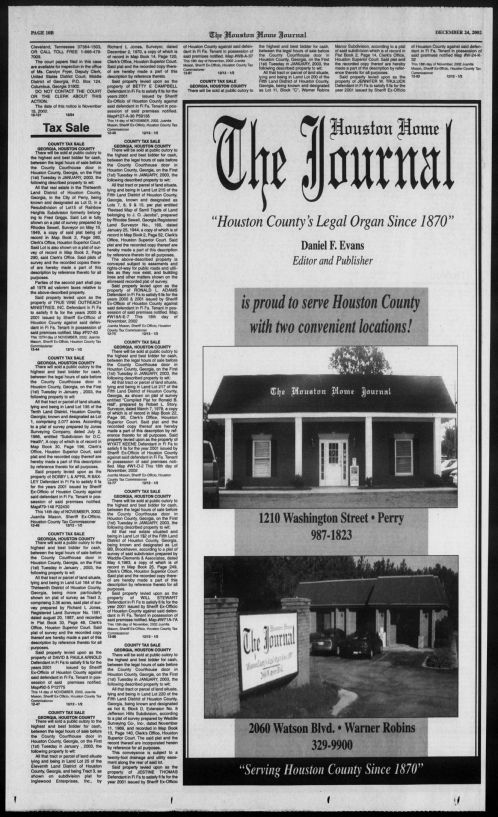
Houston Home Journal, December 24, 2002
Photographs of the Houston Home Journal offices.
gahistoricnewspapers.galileo.usg.edu/lccn/sn99000076/2002-12-24/ed-1/seq-22
About Houston County Public Library System
The Houston County Public Library System is bridging yesterday and tomorrow with information and discovery. The purpose of the Houston County Public Library System is to offer a full program of library services to all citizens of Houston County and the surrounding communities in order to meet their informational, educational, and recreational needs. Visit the library at houpl.org/.


